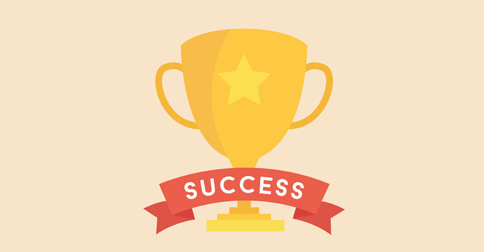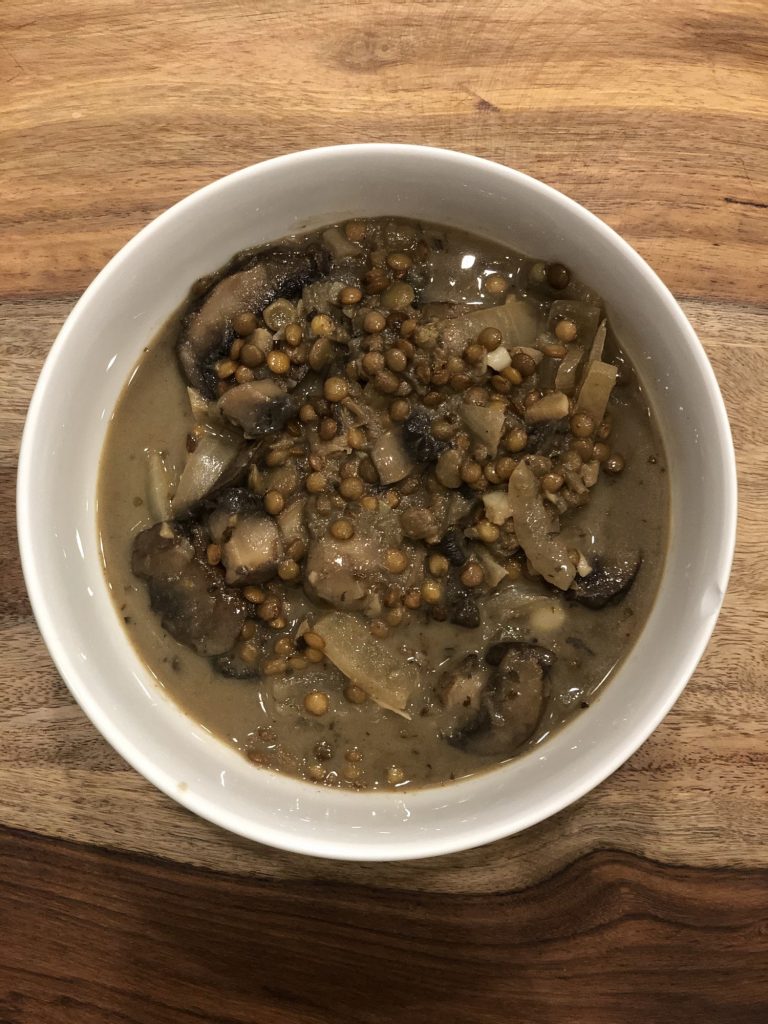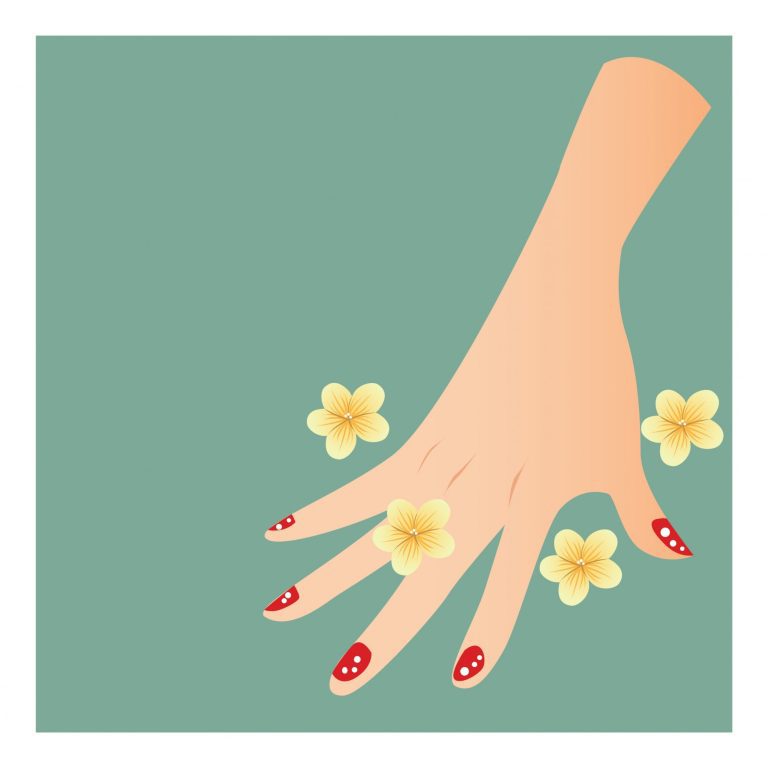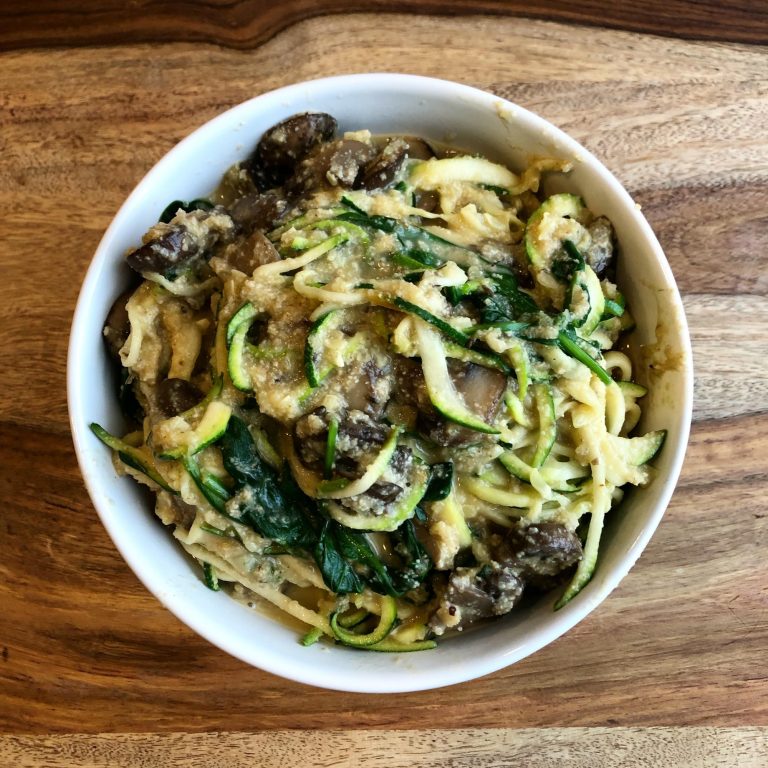Cutting Through the Clutter: How to (Finally) Figure Out Which Health Information is Right… and Which is Dead Wrong
By Nicole Martin
December 19, 2017
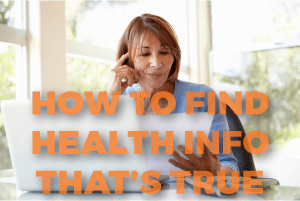
There’s a lot of health information out there. And A LOT of it is just plain wrong. So, how do you tell the difference?
There’s a lot of wrong health information floating around out there… so how do you know what’s accurate, and what’s not?
For example, over the last decade the following claims have been made:
- Ocean Spray cranberry juice can heal a urinary tract infection.
- Eating high-fat cheese and meat can be good for your cholesterol levels.
- Diet Soda is better for weight loss than water.
- Kids who eat candy lose more weight.
- Concord grape juice makes you a better driver.
All of this information has more in common than merely being either false (which most of it is) or at least drastically taken out of context.
Each of these studies was also funded by a company or professional association that—surprise, surprise!—would benefit directly from those claims being true.
Ocean Spray funded the cranberry study. (Note: It is true that compounds called proanthocyanidins and D-mannose found in cranberries can have positive effects on a UTI, but the issue is that Ocean Spray cranberry juice processes both of these compounds completely out of the final product.)
The Dairy Research Institute and the Danish Dairy Research Foundation bankrolled the fatty cheese one. Both Pepsico and Coca-Cola opened up their wallets for the Diet Soda study. The National Confectioner’s Association paid for the candy one (and then put out their own press release about it). And Welch’s (in what is probably the most absurd study on this list, given both the suspect methods used and the interpretation of the results) was directly responsible for trying to get you to drink more grape juice.
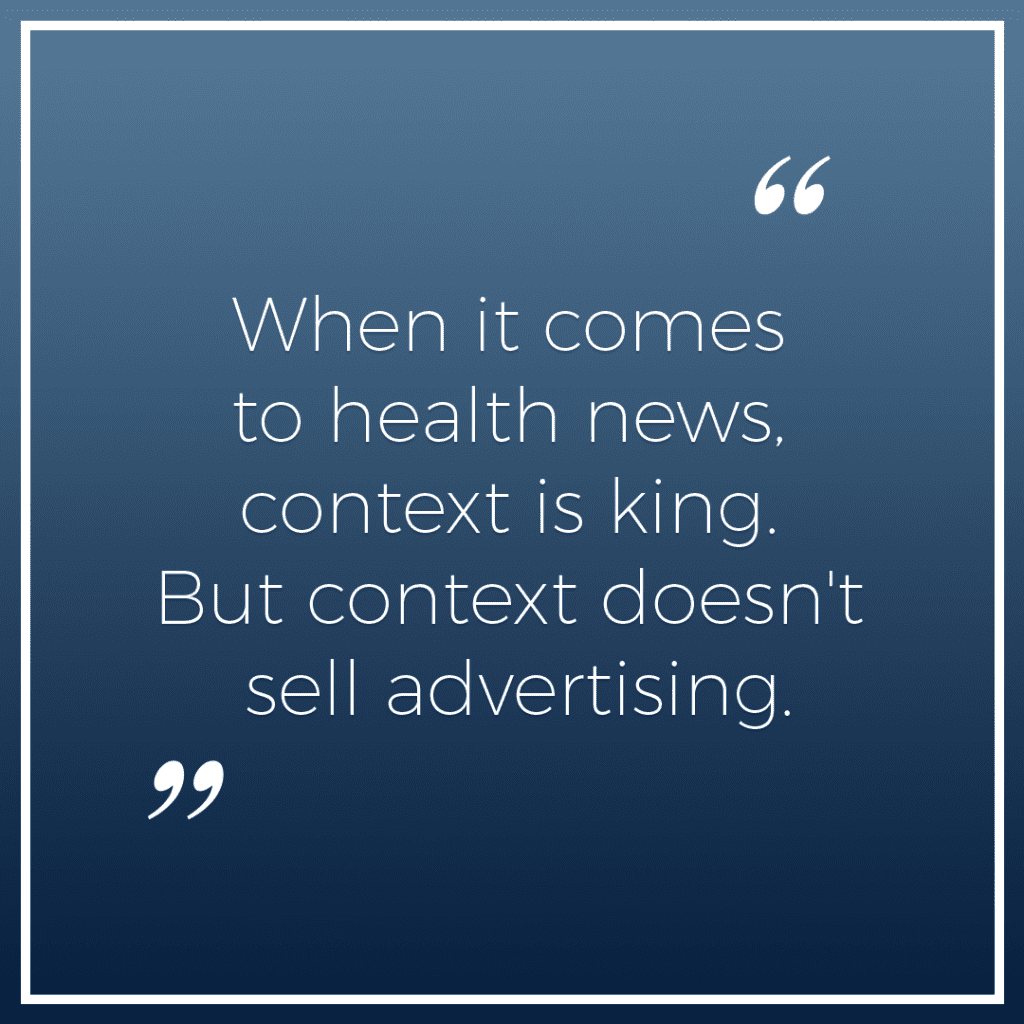
(There’s one I didn’t even include from Dannon’s Activia campaign from a few years back. Remember when Jamie Lee Curtis said that the probiotics in Activia yogurt could prevent all sorts of things, including colds and flu? Well, I didn’t include that study because, well… They never finished it. They STARTED the study, but then just said forget it and deployed Ms. Curtis out to spout wildly unsubstantiated nonsense over the airwaves.)
As you can see from just these few examples, they’ve stacked the deck against us. It’s confusing. It’s hard to know where to get the RIGHT information. The TRUE information.
So, here are four tips for cutting through the clutter to find the right information about your health.

1. Look for the Original Sources
There aren’t many of us who are able—or willing—to dig through peer-reviewed medical journals online, organize the data, and then draw our own conclusions about what’s factual and what’s not.
In fact, most of the most relevant and up to date information live behind pretty expensive paywalls, so even getting TO the info can be a significant obstacle.
Fortunately, there are brave medical professionals out there who are willing to do the digging for you. And one of the keys to knowing if they’re giving you the right information is if they’re citing legitimate peer-reviewed studies.
Dr. Michael Greger over at Nutritionfacts.org is a prime example of someone on the front lines of taking complex medical information and translating it for the rest of us. He puts up videos on an almost daily basis looking at the evidence and then explaining what it means for your health. As a researcher himself, he has a lot of experience knowing how to tell an excellent study from a bad one.
(I’m looking at you, Ocean Spray.)
And original citations are his main weapon of choice.
2. Know What the Media is Always Going to Do
Which is… get the information wrong.
In 2016, news agencies around the world reported on a study out of Cornell published in the journal Molecular Biology and Evolution.

Here are a few of the headlines the news agencies ran:
“Long-term vegetarian diet changes human DNA raising risk of cancer and heart disease” (Telegram).
“Being a long-term vegetarian changes your DNA and increases your risk of cancer” (Cosmo UK).
“Being a vegetarian could kill you, science warns” (New York Post).
Which sounds scary, right?
Well, the problem is that the Cornell study didn’t say that at all.
Instead, the study found that certain people whose ancestors were primarily vegetarian had developed a specific genetic change that could naturally produce omega 3 and omega 6 fatty acids within their bodies. Both fatty acids are necessary for human life but aren’t as easily available in a vegetarian diet. So, these genetic lines have developed the ability to create the fatty acids internally, and the study recommended that if you feel better eating a vegetarian diet, continue to do it. Eat according to your genes—because if your body is producing these acids already, eating a lot of meat and oils can cause inflammation due to excess fatty acids.
Which is super cool! Think about it: The body isn’t getting what it needs. So, the genetic line adapts and develops the ability to make that thing within the body ITSELF. The story should’ve been how amazing our body and genes are!
Instead, it was all taken out of context, and bacon lovers everywhere rejoiced.
Unfortunately, this isn’t an isolated incident. If you hear about a new breakthrough study reported on the evening news, take it with a grain of salt (or twelve).
Context is king. But context doesn’t sell advertising.

3. Know that You’re Actively Being Marketed to at All Times
My dad used to eat Honey Nut Cheerios all the time. He was (and is still) always trying to be healthy, and I remember him saying that he ate them because of what it said right there on the box:
“Look, it says it’s good for my heart.”
I’m not sure he even liked Honey Nut Cheerios. He just ate them because General Mills told him it was good for his heart, and he wanted to be healthy.
This was before I started studying nutrition and marketing, so I didn’t know the difference at the time. But when I did learn how big business targets its messaging to us, I was furious. My dad was a “marketing victim…” Just like all of us have been at one time or another.
I felt the same degree of anger when I first heard a speaker announce, from the stage, “Milk does a body…” and then heard the audience, as one, chime in “GOOD!”
We’ve been programmed to trust the same industries that are slowly killing us.
Marketing works. If the box tells you something, even if it doesn’t make sense, we’re inclined to believe it. After all, your cereal box can’t legally lie to you every morning at the breakfast table, right?
Well, no. There are plenty of loopholes that food manufacturers can use to stay legal while still deceiving you.
For example, the whole “sugar-free” craze of the last few decades. Just calling these products “diet” is already problematic on a bunch of levels. But marketing these products as “healthier” is amazingly false. Excess sugar is bad for us, but our bodies require a small amount of it. Artificial sweeteners, on the other hand, are some of the most toxic substances allowed into our food.
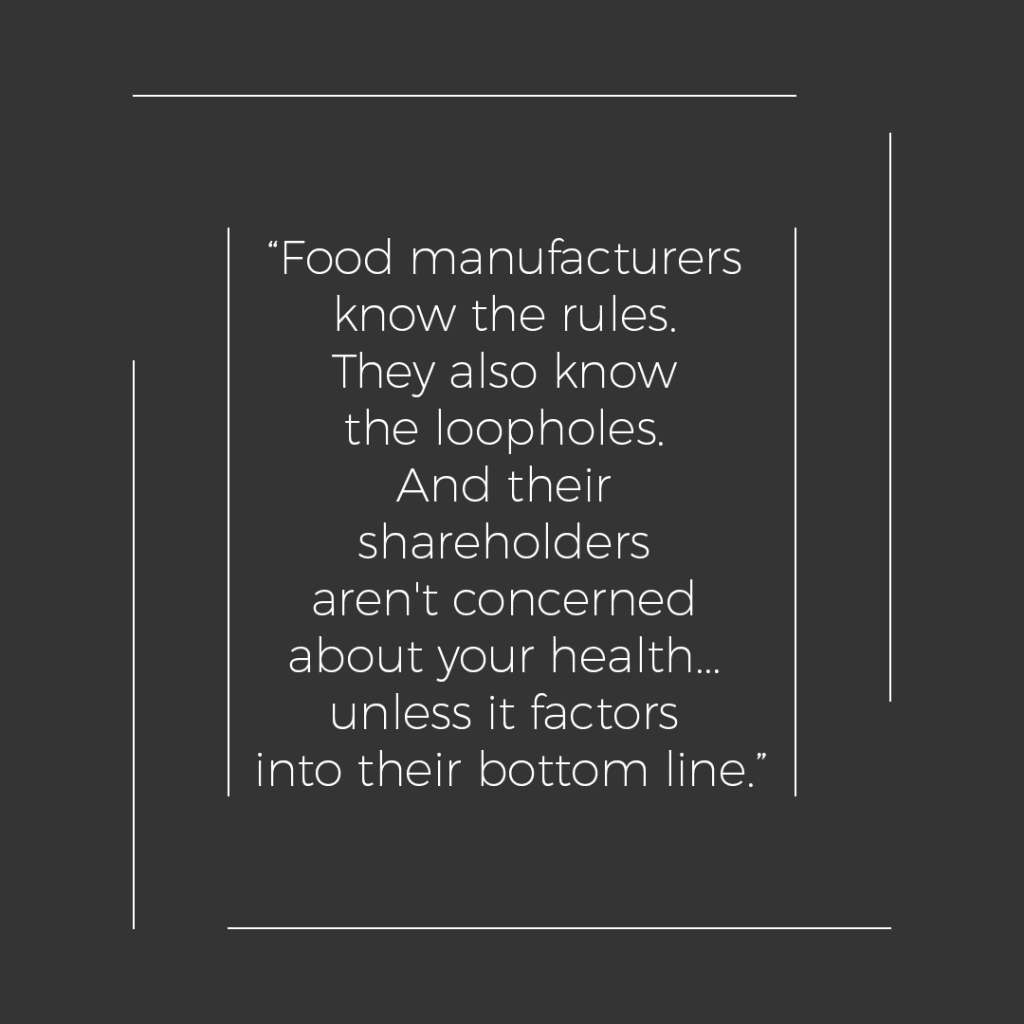
Or, take a look at what it means for something to be legally allowed to display the “0% Trans Fat” label. The FDA’s guidelines actually allow any product that has less than half a gram of trans fat per serving to go ahead and round down. Most of what claims to be “0% Trans Fat” contains trans fats. Ask any kindergartener anywhere and they’ll tell you what you already know: That’s called a lie.
So, the takeaway here is this: You are being marketed to. Twenty-four hours a day, seven days a week.
Just knowing that puts the power back in your hands.
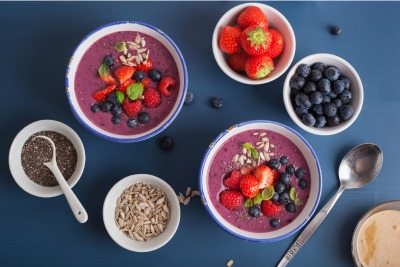
4. Know That There’s No Such Thing as a “Superfood”
The media loves to label things as superfoods. Bananas, avocados, salmon, salmon, blueberries, açai and goji berries, chia and hemp seeds… the list is a long one.
The problem, though, is that there’s no such thing as a universal “superfood.”
Why?
Because we’re all biologically unique. What’s good for my body might wreak havoc in yours.
Kale is an excellent example of this problem. Most people would recognize kale as universally healthy. But we’ve had a number of members whose systems were so out of whack that eating kale created a whole cascade of serious problems.
But, again… This is all common sense, right? Just like there are no real get rich quick schemes, there also aren’t any magic bullets for your health. There’s no pill that you can take that will cure everything that ails you, just as there’s no food that’s going to do the same.
The thread running through all of this search for great health information is that you should find experts who know what they’re talking about, be skeptical of what’s coming at you in the media, use your common sense, and let your body be your best doctor.
If eating something makes you feel terrible, don’t eat it. If you find a combination of plants and grains that hits the sweet spot and makes you feel great… awesome! Eat that!
Listen to what your body says. It knows best.
Want more? Watch below…

